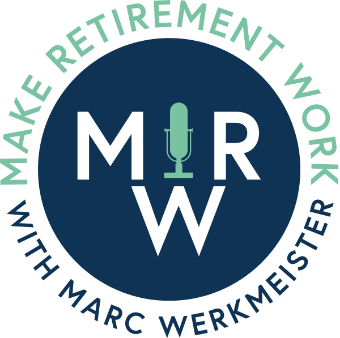
When the Federal Reserve raises its benchmark federal funds rate, there are a number of ways it could affect you as a consumer and investor.
What is the federal funds rate?
The federal funds rate is the interest rate at which banks lend funds to each other overnight to maintain legally required reserves. It applies only to funds that stay on deposit within the Federal Reserve System. The Federal Open Market Committee (FOMC) sets a target range for the funds rate, usually a 0.25% spread, and then sets two specific rates that act as a floor and a ceiling to push the funds rate into that target range. The rate may vary slightly from day to day, but it generally stays within the target range.
Although the federal funds rate is an internal rate within the Federal Reserve System, it serves as a benchmark for many short-term rates set by banks and can influence longer-term rates as well.
Why does the Fed adjust the federal funds rate?
The Federal Reserve and the FOMC operate under a dual mandate to conduct monetary policies that foster maximum employment and price stability. Adjusting the federal funds rate is one way the central bank can influence economic growth and inflation.
The FOMC raises the federal funds rate in an effort to slow the economy and hold back inflation, which can rise rapidly when an economy grows too quickly. The Fed has set a 2% annual inflation goal as consistent with healthy economic growth.
How will consumer interest rates be affected?
The prime rate, which commercial banks charge their best customers, is typically tied directly to the federal funds rate. Though actual rates can vary widely, small-business loans, adjustable rate mortgages, home equity lines of credit, auto loans, credit cards, and other forms of consumer credit are often linked to the prime rate, so the rates on these types of loans typically increase with the federal funds rate. Fed rate hikes might also put upward pressure on interest rates for new fixed rate home mortgages, but these rates are not tied directly to the federal funds rate or the prime rate.
Although rising interest rates make it more expensive for consumers and businesses to borrow, retirees and others who seek income could eventually benefit from higher yields on savings accounts and CDs. However, banks have been faster to raise rates charged on loans than to raise rates paid on deposits. This may change as rates continue to rise and the economy continues to improve. Theoretically, the "tipping point" for savers will come when banks have to compete for deposits in order to meet higher demand for loans.
What about investors?
Interest rate changes can have broad effects on investments, but the impact tends to be more pronounced in the short term as markets adjust to the new level.
When interest rates rise, the value of existing bonds typically falls. Put simply, investors would prefer a newer bond paying a higher interest rate than an existing bond paying a lower rate. Longer-term bonds tend to fluctuate more than those with shorter maturities because investors may be reluctant to tie up their money for an extended period if they anticipate higher yields in the future.
Bonds redeemed prior to maturity may be worth more or less than their original value, but when a bond is held to maturity, the bond owner would receive the face value and interest, unless the issuer defaults. Thus, rising interest rates should not affect the return on a bond you hold to maturity, but may affect the price of a bond you want to sell on the secondary market before it reaches maturity.
Bond funds are subject to the same inflation, interest rate, and credit risks associated with their underlying bonds. Thus, falling bond prices due to rising rates can adversely affect a bond fund's performance. However, as underlying bonds mature and are replaced by higher-yielding bonds within a rising interest rate environment, the fund's yield and/or share value could potentially increase over the long term.
Equities may also be affected by rising rates, though not as directly as bonds. Stock prices are closely tied to earnings growth, so many corporations stand to benefit from a more robust economy. On the other hand, companies that rely on heavy borrowing will likely face higher costs going forward, which could affect their bottom lines.
The broader market may react when the Fed announces a decision to raise rates or not to raise rates, but any reaction is typically temporary. Fundamentally, what matters is how the economy performs as interest rates adjust. As always, it's important to maintain a long-term perspective and make sound investment decisions based on your own financial goals, time horizon, and risk tolerance.
The FDIC insures CDs and bank savings accounts, which generally provide a fixed rate of return, up to $250,000 per depositor, per insured institution. The return and principal value of stocks and investment funds fluctuate with market conditions. Shares, when sold, may be worth more or less than their original cost.
This content has been reviewed by FINRA.













